
The Vibrant Heart of Algiers: Bab El Oued
Bab El Oued is a lively and historic neighbourhood in the bustling city of Algiers, Algeria. Known for its vibrant street life and rich cultural tapestry, it offers a unique blend of the old and the new. As you stroll through the narrow streets, you will be captivated by the colourful murals and the aroma of traditional Algerian cuisine wafting from local eateries. One of the most striking features of Bab El Oued is its stunning coastal views. The neighbourhood stretches along the Mediterranean Sea, providing picturesque scenes that are perfect for a leisurely walk or a relaxing moment by the water. The local fish market is a must-visit, where you can experience the daily hustle and bustle and even sample some freshly caught seafood. Historically, Bab El Oued has been a melting pot of cultures and traditions. This is reflected in its diverse architecture, ranging from Ottoman-era buildings to French colonial structures. The neighbourhood is also home to several important landmarks, including the iconic El Kettar Cemetery and the vibrant Bab El Oued Market, where you can find everything from fresh produce to handcrafted souvenirs. Bab El Oued is not just about its sights; it's also about the people. The residents are known for their warmth and hospitality, making every visitor feel welcome. Whether you're enjoying a cup of mint tea at a local café or exploring the historic sites, you'll find that Bab El Oued offers an authentic Algerian experience that is both enriching and unforgettable.
Local tips in Bab El Oued
- Visit early in the morning to experience the local fish market at its liveliest.
- Wear comfortable shoes as the neighbourhood's narrow streets are best explored on foot.
- Don't miss the sunset views along the Mediterranean coast for a breathtaking experience.
- Try traditional Algerian dishes like couscous and mechoui at local eateries for an authentic taste.
- Respect local customs and dress modestly, especially when visiting religious sites.
The Vibrant Heart of Algiers: Bab El Oued
Bab El Oued is a lively and historic neighbourhood in the bustling city of Algiers, Algeria. Known for its vibrant street life and rich cultural tapestry, it offers a unique blend of the old and the new. As you stroll through the narrow streets, you will be captivated by the colourful murals and the aroma of traditional Algerian cuisine wafting from local eateries. One of the most striking features of Bab El Oued is its stunning coastal views. The neighbourhood stretches along the Mediterranean Sea, providing picturesque scenes that are perfect for a leisurely walk or a relaxing moment by the water. The local fish market is a must-visit, where you can experience the daily hustle and bustle and even sample some freshly caught seafood. Historically, Bab El Oued has been a melting pot of cultures and traditions. This is reflected in its diverse architecture, ranging from Ottoman-era buildings to French colonial structures. The neighbourhood is also home to several important landmarks, including the iconic El Kettar Cemetery and the vibrant Bab El Oued Market, where you can find everything from fresh produce to handcrafted souvenirs. Bab El Oued is not just about its sights; it's also about the people. The residents are known for their warmth and hospitality, making every visitor feel welcome. Whether you're enjoying a cup of mint tea at a local café or exploring the historic sites, you'll find that Bab El Oued offers an authentic Algerian experience that is both enriching and unforgettable.
Iconic landmarks you can’t miss
Martyrs' Square
Discover Algiers' Martyrs' Square: a vibrant landmark honoring Algeria's heroes, rich history, and cultural heart in the Casbah.
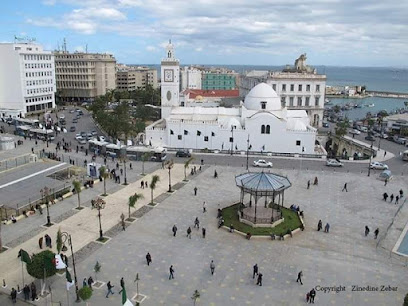
Church of Notre Dame d'Afrique
Discover Algiers' iconic basilica, a symbol of religious harmony with stunning architecture and panoramic views of the Mediterranean Sea.
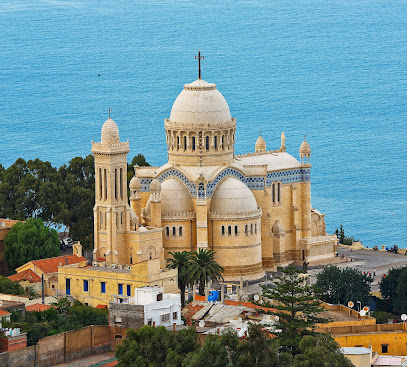
Three clocks
A historic landmark in Algiers' Bab El Oued, the Three Clocks is a symbol of the city's cultural heritage and a popular local gathering spot.
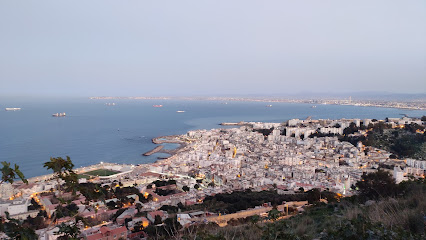
The new door
Step through history at The New Door, a captivating gateway to the Casbah of Algiers, a UNESCO World Heritage site brimming with culture and tradition.
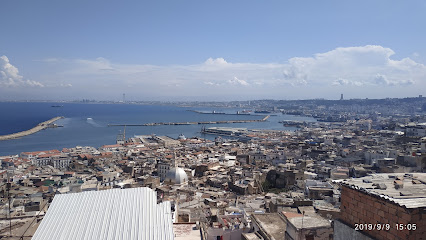
National Museum of Arts and Popular Traditions
Discover Algeria's rich artistic heritage at the National Museum of Arts and Popular Traditions, housed in a historic palace in the Casbah.
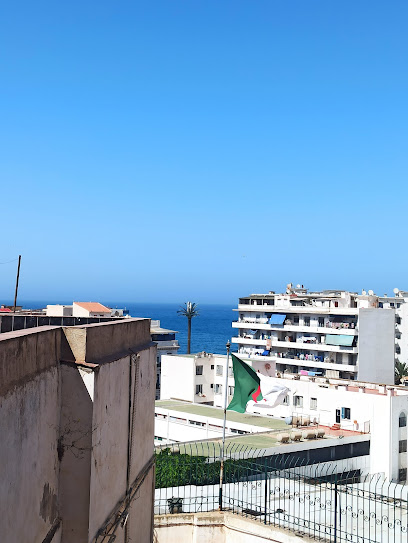
Sunni mosque
Discover the serene Sunni Mosque in Algiers' Bab El Oued, a cultural gem with stunning architecture and a peaceful ambiance.
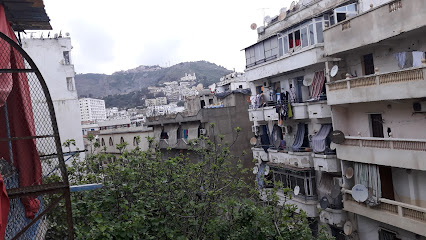
Taleb Abderrahamane Garden
Discover a peaceful retreat in Algiers at Taleb Abderrahamane Garden, offering natural beauty, cultural engagement, and serene relaxation.
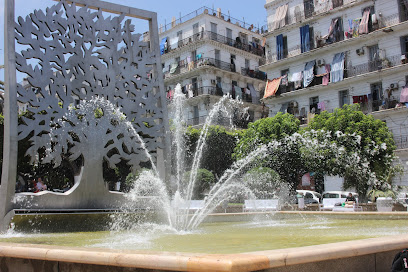
Enclosure wall of the Casbah
Explore the historic Enclosure Wall of the Casbah in Algiers, a UNESCO World Heritage site showcasing Algeria's rich cultural heritage and architectural beauty.
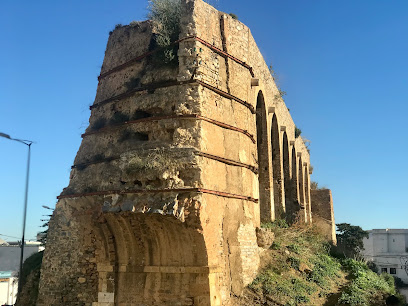
Dar Khedaoudj el Amia
Explore Dar Khedaoudj el Amia in Algiers' Casbah: A historical house offering a glimpse into Algerian women's lives during the Ottoman era.
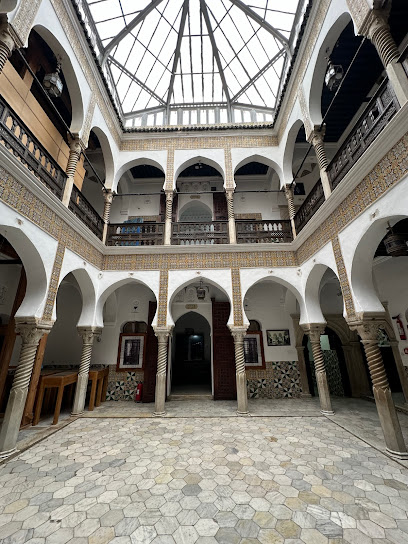
le Moulin
Discover Le Moulin in Algiers' Bab El Oued: A picturesque blend of history, culture, and coastal charm in a serene setting.
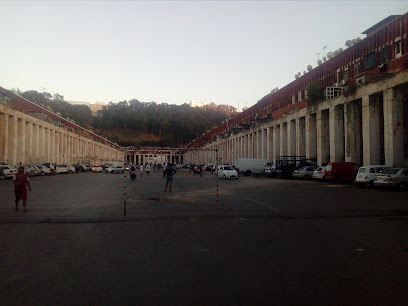
الساعات الثلاث
Explore the historic Three Clocks in Algiers' Bab El Oued, a symbol of community and a gateway to local culture.
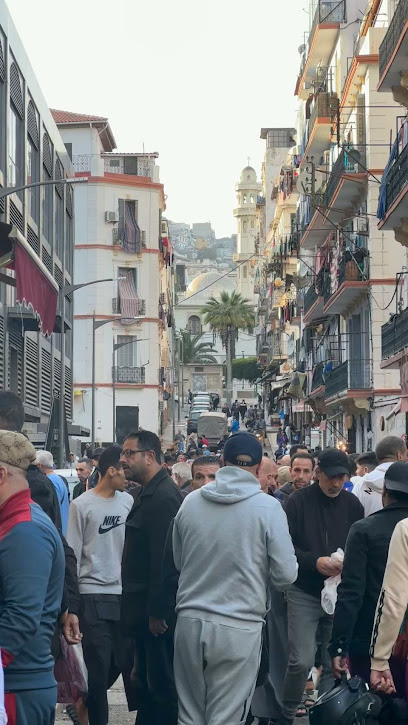
Dar Boulam Elhdaidi
Explore Dar Boulam Elhdaidi in Algiers' Casbah: A journey through Algeria's rich history, showcasing stunning architecture and cultural heritage.
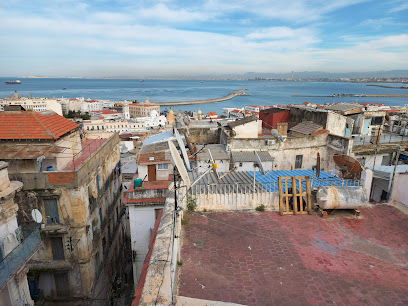
Unmissable attractions to see
Martyrs Memorial
Visit the Martyrs Memorial in Algiers, a towering monument honoring Algeria's independence and offering panoramic city views.
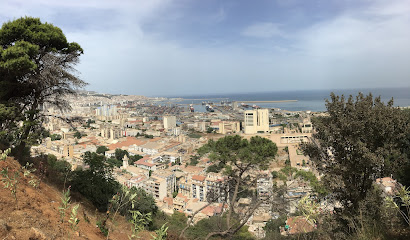
Botanical Garden Hamma
Discover a historic botanical garden in Algiers with diverse plant collections, serene landscapes, and a tranquil escape from the city.
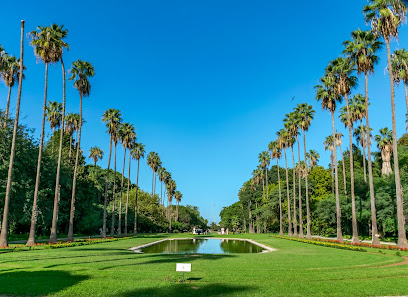
Ben Aknoun National Park
Discover Algiers' natural side at Ben Aknoun National Park: a zoo, gardens, and tranquil escape for families and nature enthusiasts.
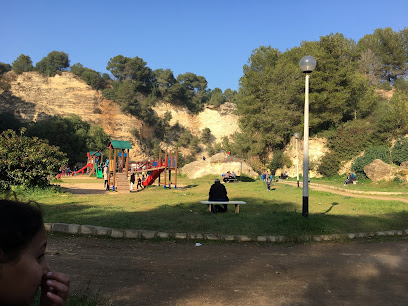
Sablette Seaview Ballade
Discover Algiers' coastal charm at Sablette Seaview Ballade: a perfect blend of relaxation, recreation, and stunning Mediterranean views for all ages.
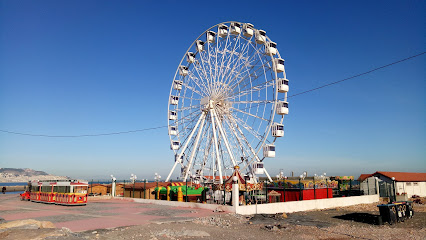
Three clocks
A historic landmark and vibrant meeting point in Algiers' Bab El Oued, reflecting the area's rich cultural heritage and community spirit.
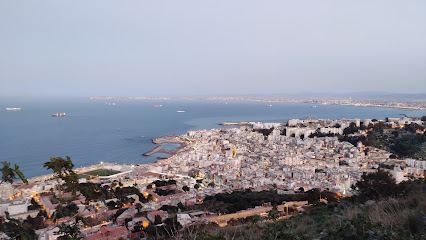
بَابُ عَزُّونْ
Explore Bab Azzoun: A vibrant gateway to the historic Casbah of Algiers, rich in culture and history.
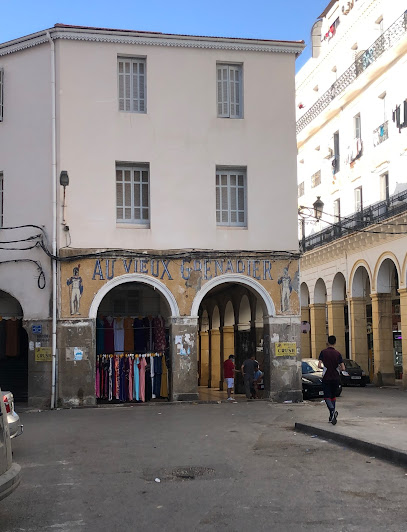
Freedom Park
Escape to tranquility in Algiers' Freedom Park, a historic green space offering relaxation and cultural events in the city center.
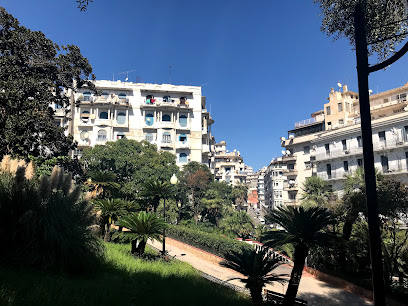
Fantasia Land
Experience Algerian culture and entertainment at Fantasia Land, a magical amusement park in the heart of Algiers. Fun for the whole family!
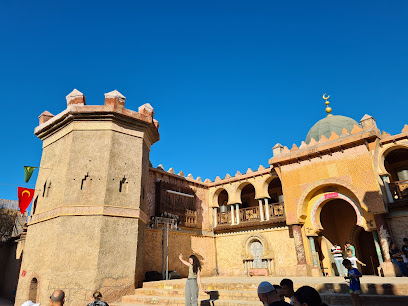
Dar Mustapha Pacha
Discover Ottoman grandeur at Dar Mustapha Pacha in Algiers' historic Casbah, home to exquisite miniatures, calligraphy, and Algerian heritage.
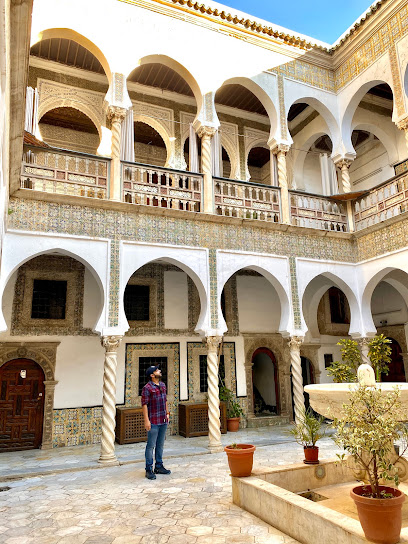
Dar Hassan Pacha
Explore Dar Hassan Pacha, an 18th-century palace in Algiers' Casbah, showcasing Ottoman architecture and a rich history. A cultural landmark!
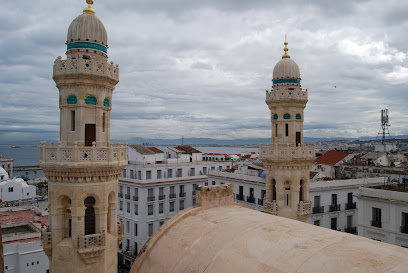
le balcon de la casbah d'Alger
Experience breathtaking views and immerse yourself in the rich history and culture of Algiers at Le Balcon de la Casbah.
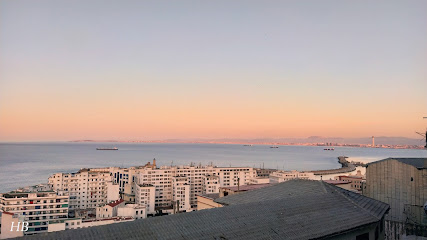
Promenade Sablettes - Algiers
Experience Algiers' stunning seaside promenade: a blend of modernity and nature offering relaxation, activities, and breathtaking Mediterranean views.
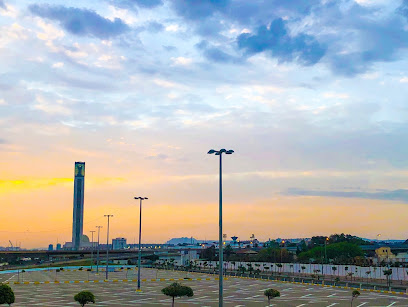
Belle vue
Experience breathtaking panoramic views of Algiers at Belle Vue, a serene escape blending urban and natural beauty, perfect for memorable moments.
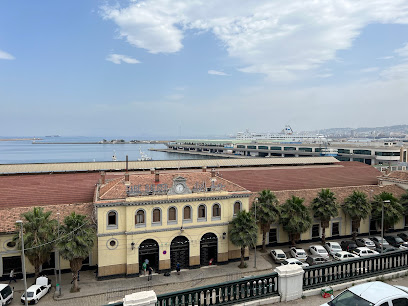
Fontaine
Escape to the serene beauty of Fontaine in Algiers, a picturesque retreat blending nature and culture in the heart of Bir Mourad Raïs.
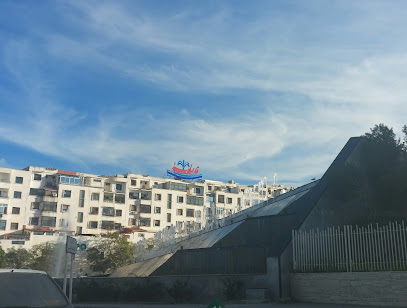
Essential places to dine
سوريا شاورما على الجمر Syrian-style Charcoal Shawarma
Experience authentic Syrian-style charcoal shawarma in Bab El Oued – a must-visit culinary destination for food enthusiasts.
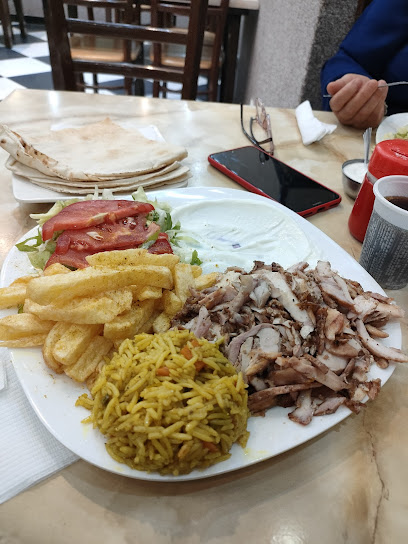
Beb El oued
Discover Beb El Oued: A Coastal Culinary Haven Offering Fresh Seafood Delights and Stunning Mediterranean Views.
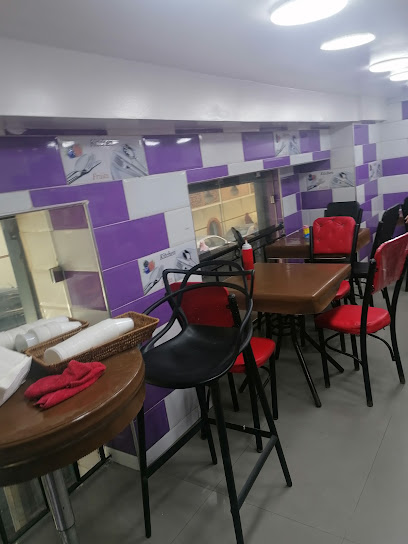
Restaurant mimina
Experience the authentic flavors of Algeria at Restaurant Mimina in Bab El Oued - where culinary tradition meets modern dining.
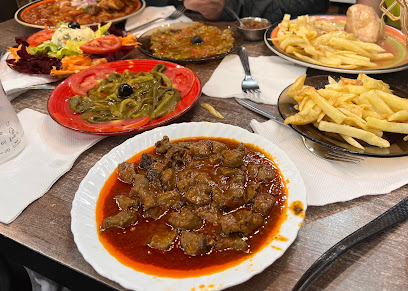
Restaurant Mansour
Experience authentic Algerian cuisine at Restaurant Mansour in Bab El Oued - a delightful culinary journey awaits you.
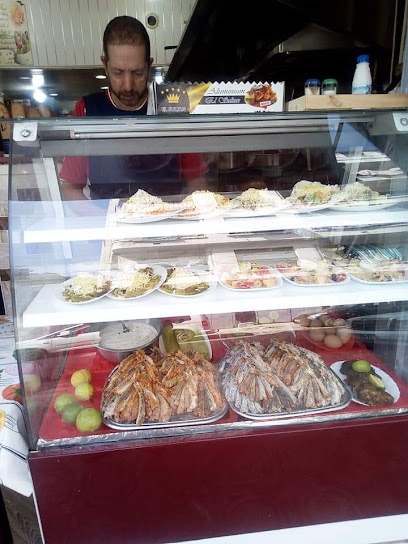
Black & Yellow
Savor the best of Algerian cuisine at Black & Yellow - where local flavors meet culinary creativity in Bab El Oued.
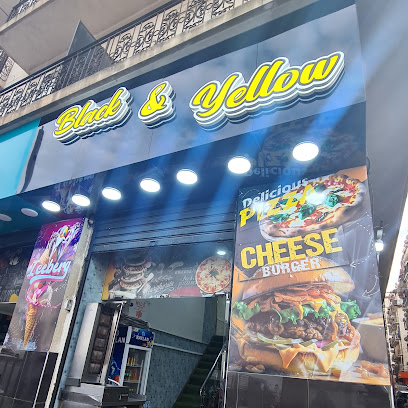
Casa Food
Experience authentic Algerian cuisine at Casa Food in Bab El Oued – where every dish tells a story.
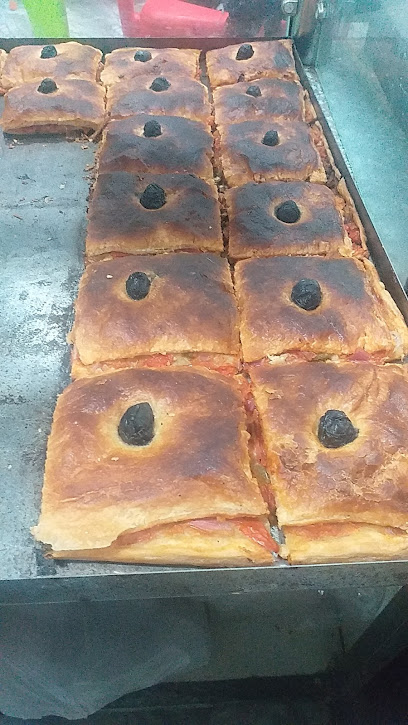
Un Coin De Bonheur
Experience authentic Algerian cuisine at Un Coin De Bonheur in Bab El Oued, where warmth meets tradition for an unforgettable dining experience.

Piezzza
Experience authentic Italian cuisine at Piezzza in Bab El Oued, where delicious pizzas meet stunning coastal views.

البنة مع بنت الزهور
Experience authentic Algerian cuisine at البنة مع بنت الزهور in Bab El Oued – where every meal tells a story.
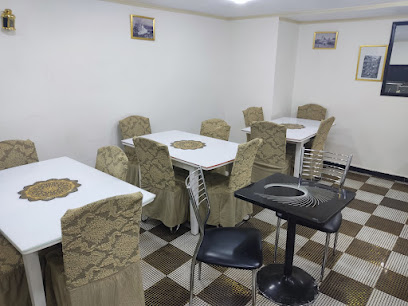
LA MAMA
Experience authentic Algerian cuisine at La Mama in Bab El Oued – where tradition meets flavor in a stunning coastal setting.
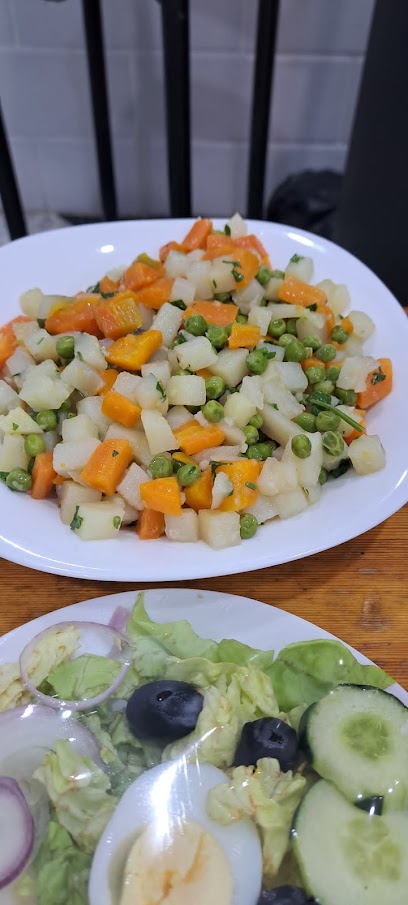
Markets, malls and hidden boutiques
Universal shopping
Discover fashion and culture at Universal Shopping in Bab El Oued, where local style meets international trends.

Fast shooping dz
Discover the latest in electronics at Fast Shopping DZ, Bab El Oued's top destination for gadgets and tech accessories.
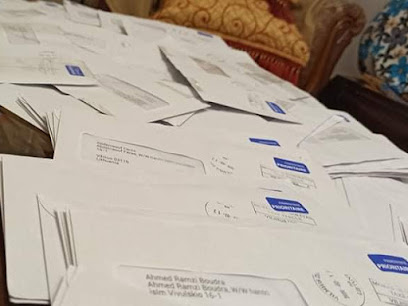
Crystal Boutique
Explore the vibrant fashion offerings at Crystal Boutique in Bab El Oued, where local style meets contemporary elegance.
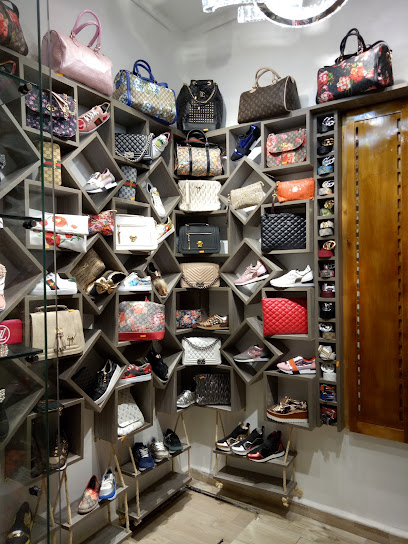
تصليح الات الخياطة بازايطة عبدالقادر
Explore the unique charm of Abdelkader Bezaïta's tailoring workshop in Bab El Oued, where local craftsmanship meets personalized service in a vibrant atmosphere.
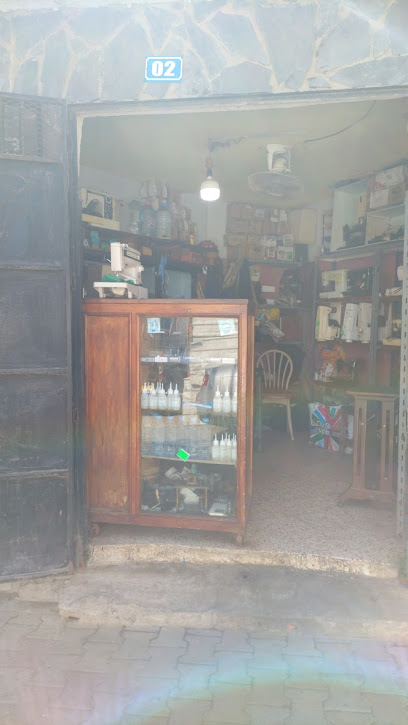
Boutique Mimou
Explore the vibrant world of women's fashion at Boutique Mimou in Bab El Oued, where tradition meets contemporary style.
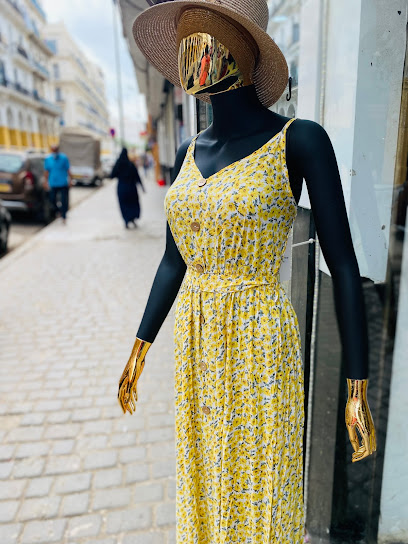
Boutique Teck
Explore Boutique Teck in Algiers for unique fashion pieces that blend local craftsmanship with international trends.

Magic Fashion
Explore the vibrant fashion scene of Bab El Oued at Magic Fashion, where style meets local culture in an unforgettable shopping experience.
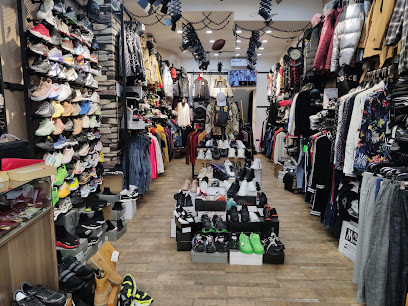
Bab El Oued Alger
Discover the vibrant women's clothing store in Bab El Oued, where tradition meets modern fashion against a stunning coastal backdrop.

Joker fashion
Explore the vibrant fashion at Joker Fashion in Bab El Oued, where style meets Algerian culture in every garment.
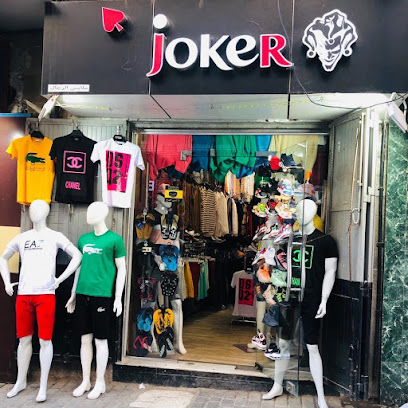
L'Aquarium Bab El Oued
Dive into the captivating marine world at L'Aquarium Bab El Oued, a must-visit for marine life enthusiasts in the heart of Algiers.
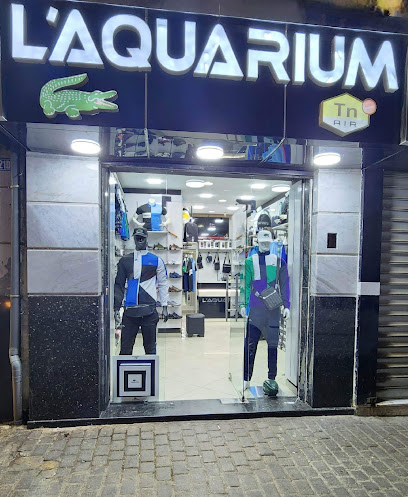
luxe style
Experience unparalleled fashion at Luxe Style, a clothing store featuring the latest trends and timeless pieces in a chic environment.
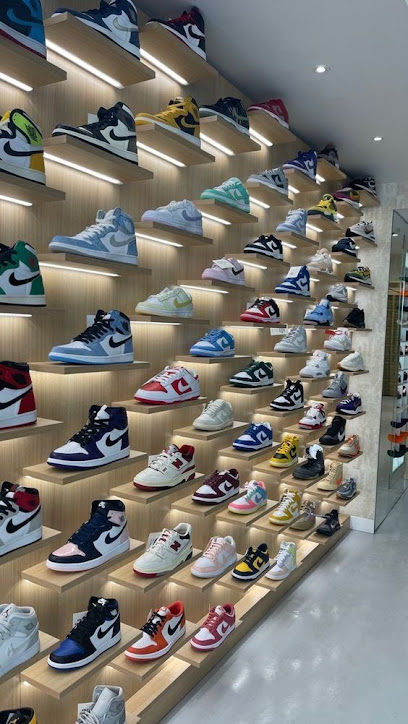
رب رد رد sona
Explore Sona, the charming gift shop in Bab El Oued, offering unique Algerian crafts and souvenirs that capture the essence of your travels.

الجودة
Explore الجوده, a unique gift shop in Bab El Oued, offering authentic Algerian souvenirs and crafts to treasure your travel memories.

Essential bars & hidden hideouts
Le douze
Discover the flavors of Algeria at Le Douze, a fast food haven in Bab El Oued, blending local and international cuisines for a satisfying meal.
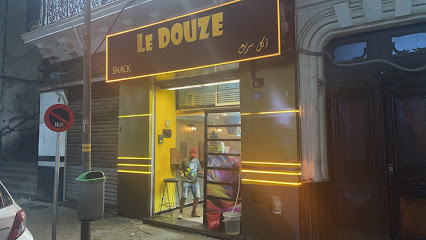
Beb El oued
Discover the delightful flavors and stunning views of Beb El Oued, a culinary gem on the shores of Algiers, Algeria.
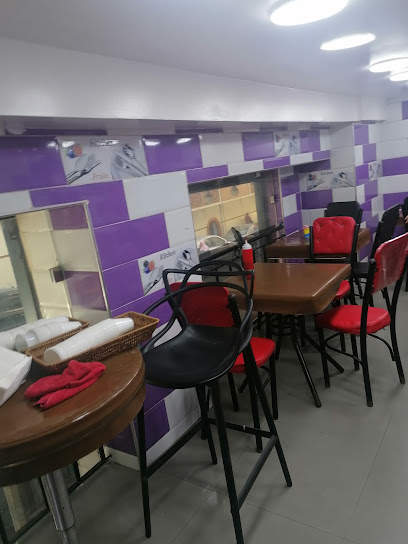
Black & Yellow
Experience the vibrant flavors of Algerian cuisine at Black & Yellow, a delightful restaurant in Bab El Oued.
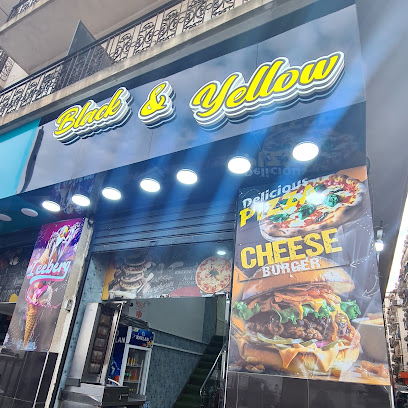
كمال ليوندرو
Experience the vibrant nightlife at كمال ليوندرو, a premier bar in Oued Koriche, Algiers, blending local flavors with a lively atmosphere.

La cafete Anis
Experience the vibrant flavors of La Cafete Anis, a delightful fusion of fast food and coffee culture in Bab El Oued, Algiers.
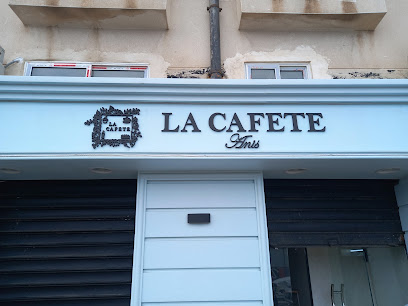
The seed crill
Discover the flavors of Algiers at The Seed Crill, a fast food destination in Bab El Oued blending local charm with quick service and delicious meals.
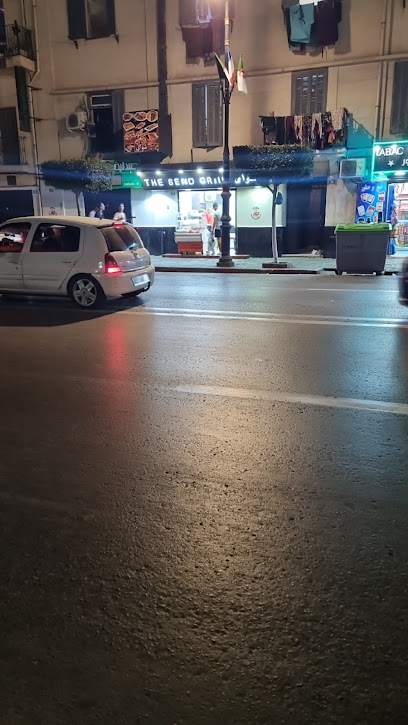
Piezzza
Experience the perfect blend of tradition and innovation at Piezzza, where every pizza tells a story in the heart of Bab El Oued.

البنة مع بنت الزهور
Experience authentic Algerian cuisine at البنة مع بنت الزهور in Bab El Oued, where local flavors meet a warm atmosphere.
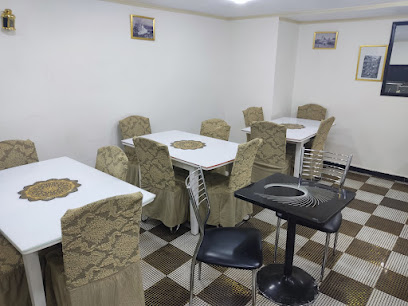
khelwi hanoutek agence pub et designe
Experience the vibrant atmosphere and local hospitality at Khelwi Hanoutek, a charming pub in Bouloughin, perfect for relaxation and socializing.
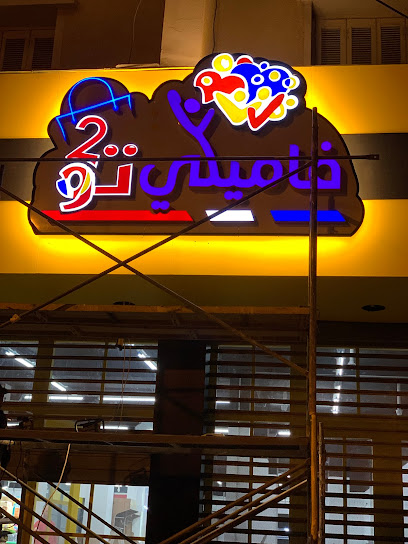
LA MAMA
Discover the flavors of Algeria at La Mama, a charming restaurant in Bab El Oued, where every dish tells a story.
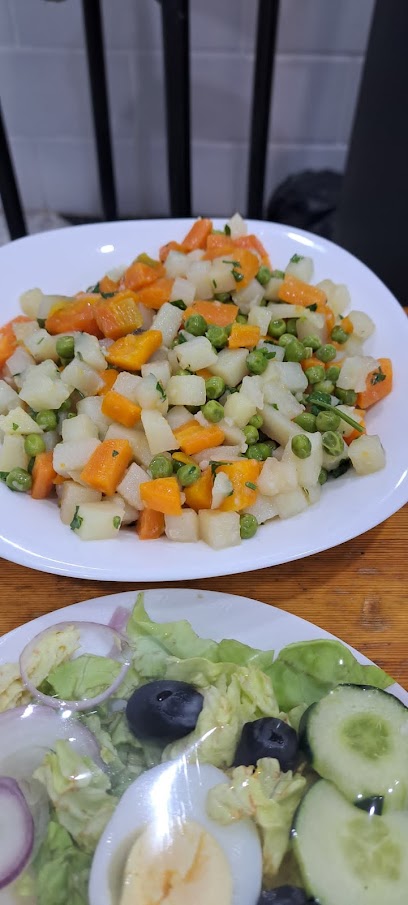
Local Phrases
-
- Helloسلام
[salaam] - Goodbyeوداعا
[wadaa'an] - Yesنعم
[naam] - Noلا
[laa] - Please/You're welcomeمن فضلك
[min fadlik] - Thank youشكرا
[shukran] - Excuse me/Sorryعذرا
[aathara] - How are you?كيف حالك؟
[kayfa halak?] - Fine. And you?بخير. وأنت؟
[bikhayr. wa anta?] - Do you speak English?هل تتكلم الإنجليزية؟
[hal tatakallam al-ingliziya?] - I don't understandلا أفهم
[laa afham]
- Helloسلام
-
- I'd like to see the menu, pleaseأريد أن أرى القائمة، من فضلك
[urid an ara al-qaima, min fadlik] - I don't eat meatأنا لا أأكل اللحم
[ana la aakol al-lahm] - Cheers!في صحتك!
[fi sahtak!] - I would like to pay, pleaseأريد أن أدفع، من فضلك
[urid an adfaa, min fadlik]
- I'd like to see the menu, pleaseأريد أن أرى القائمة، من فضلك
-
- Help!النجدة!
[al-najda!] - Go away!انصرف!
[ansarif!] - Call the Police!اتصل بالشرطة!
[iatisil bialshurtat!] - Call a doctor!اتصل بطبيب!
[iatisil bitabib!] - I'm lostأنا ضائع
[ana da'i] - I'm illأنا مريض
[ana mariid]
- Help!النجدة!
-
- I'd like to buy...أريد أن أشتري...
[urid an ashtari...] - I'm just lookingأنا فقط أتفرج
[ana faqat atfarrag] - How much is it?كم سعره؟
[kam sa'ruh?] - That's too expensiveهذا غالي جدا
[hatha ghali jiddan] - Can you lower the price?هل يمكنك خفض السعر؟
[hal yumkinuk khafdh al-sa'ur?]
- I'd like to buy...أريد أن أشتري...
-
- What time is it?كم الساعة؟
[kam al-saa'a?] - It's one o'clockالواحدة
[al-wahida] - Half past (10)العاشر والنصف
[al-ashir wan-nisf] - Morningالصباح
[al-sabah] - Afternoonالظهر
[al-thuhr] - Eveningالمساء
[al-masa'] - Yesterdayالبارحة
[al-barhah] - Todayاليوم
[al-yawm] - Tomorrowغدا
[ghadan] - 1واحد
[wahid] - 2اثنان
[ithnan] - 3ثلاثة
[thalathah] - 4أربعة
[arba'ah] - 5خمسة
[khamsah] - 6ستة
[sittah] - 7سبعة
[sab'ah] - 8ثمانية
[thamaniyah] - 9تسعة
[tis'ah] - 10عشرة
[asharah]
- What time is it?كم الساعة؟
-
- Where's a/the...?أين ...؟
[ayn ...?] - What's the address?ما هو العنوان؟
[ma hu al-ainan?] - Can you show me (on the map)?هل يمكنك أن تريني (على الخريطة)؟
[hal yumkinuk an tarini (ala al-kharitah)?] - When's the next (bus)?متى القادم (الحافلة)؟
[mata al-qadim (al-hafilah)?] - A ticket (to ....)تذكرة (إلى ...)
[tadhkirat (ila ...)]
- Where's a/the...?أين ...؟
History of Bab El Oued
-
Bab El Oued, originally known as 'Bab el-Oued' in Arabic, has its origins in the Ottoman Empire when it served as a vital port area. The Ottomans recognized the strategic importance of this coastal location, which facilitated trade and maritime activities between Algiers and other Mediterranean ports. The establishment of fishing and agricultural activities laid the groundwork for the neighborhood's growth, making it an integral part of Algiers' economic landscape.
-
During the French colonization of Algeria in the 19th century, Bab El Oued underwent significant changes. The French sought to modernize the area, constructing waterfront promenades and introducing new urban planning concepts. This led to the displacement of some local communities but also attracted new settlers, creating a diverse cultural tapestry. The neighborhood became known for its scenic beaches and recreational areas, which were popular among both locals and French settlers.
-
In the context of World War II, Bab El Oued became a site for various military activities. The strategic coastal location made it a focal point for Allied forces. Local residents were also involved in the resistance against colonial rule, and the area witnessed significant political activism as Algerians sought independence. The struggles and sacrifices of the local population during this tumultuous period contributed to the broader narrative of Algeria's fight for liberation.
-
After Algeria gained independence in 1962, Bab El Oued faced significant socio-economic challenges. The neighborhood struggled with urbanization issues, including inadequate infrastructure and housing shortages. However, it also became a symbol of Algerian identity and resilience. The community's efforts to rebuild and reclaim their space were marked by cultural revival initiatives, celebrating local traditions and arts.
-
In recent years, Bab El Oued has seen revitalization efforts aimed at boosting tourism and preserving its cultural heritage. Local festivals, art exhibitions, and community initiatives have emerged, showcasing the rich history and vibrant culture of the neighborhood. The area's beaches remain a popular destination for both locals and tourists, reflecting the blend of historical significance and contemporary lifestyle that characterizes Bab El Oued.
Bab El Oued Essentials
-
Bab El Oued is easily accessible from various neighborhoods in Algiers. From the city center, you can take the tram line 1 towards El Harrach Centre and get off at the Bab El Oued stop. Alternatively, taxis and ride-sharing services are widely available for direct transport. For those coming from the airport, it's best to arrange a taxi or use a shuttle service to reach Bab El Oued, which is approximately a 30-minute drive.
-
Bab El Oued is a compact neighborhood, making it easy to explore on foot. Public transport options include buses and trams, which connect to other parts of Algiers. The tram system is particularly efficient, with stops conveniently located throughout the area. While bicycles can be rented from local shops, it’s important to note that traffic can be chaotic, so cycling may not be the best option for everyone.
-
Bab El Oued is generally considered safe for tourists, but like any urban area, it’s wise to stay alert. Avoid walking alone at night in poorly lit areas and be cautious in crowded spaces where petty crime might occur. While there are no specific high-crime areas targeting tourists in Bab El Oued, it's advisable to keep an eye on your belongings and avoid displaying valuables.
-
In case of emergency, dial 17 for police assistance or 14 for fire services. For medical emergencies, visit the nearest hospital or clinic, such as the Centre Hospitalier de Bab El Oued. It's advisable to have travel insurance that covers emergencies. Pharmacies are available throughout the neighborhood for minor health issues.
-
Fashion: Do dress conservatively, especially when visiting local religious sites. Avoid wearing revealing clothing. Religion: Do respect local customs, and if visiting mosques, be prepared to cover your head. Public Transport: Do give up your seat to the elderly. Don't eat or drink on public transport. Greetings: Do greet locals with a handshake; a smile goes a long way. Eating & Drinking: Do try local dishes and accept invitations to share meals. Don’t refuse hospitality, as it may be considered rude.
-
To experience Bab El Oued like a local, visit the beach early in the morning when families gather for picnics and leisure. Engage with local vendors at the markets for fresh produce and traditional snacks. Take a stroll along the promenade for scenic views of the Mediterranean and enjoy the street food. Be sure to try local specialties such as grilled fish and traditional pastries from nearby bakeries.
Nearby Cities to Bab El Oued
-
Things To Do in Tizi Ouzou
-
Things To Do in Bejaia
-
Things To Do in Setif
-
Things To Do in Palma de Mallorca
-
Things To Do in Constantine
-
Things To Do in Oran
-
Things To Do in Alicante
-
Things To Do in Murcia
-
Things To Do in Annaba
-
Things To Do in Valencia
-
Things To Do in Tlemcen
-
Things To Do in Almeria
-
Things To Do in Oujda
-
Things To Do in Tarragona
-
Things To Do in Barcelona








